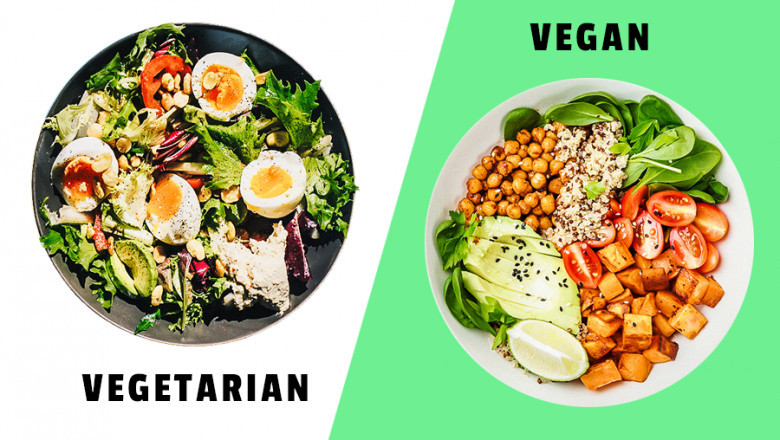views
Traditional Roots and Modern Awakening
India has a long-standing tradition of reverence toward animals. Cows are considered sacred in Hinduism; Jains abstain from all forms of animal harm; and many rural communities co-exist peacefully with wildlife. Yet, despite this spiritual affinity, modern industrial practices have led to widespread animal exploitation.
Factory farming, especially in the dairy and poultry sectors, subjects animals to harsh living conditions. Cows are routinely impregnated, separated from their calves, and kept in confined spaces. Chickens are raised in overcrowded sheds with little room to move. The disconnect between cultural reverence and modern consumption has become increasingly visible.
This growing awareness has given birth to a new generation of ethical consumers—people questioning the morality of animal use and actively seeking alternatives. These individuals form the backbone of the vegan movement in India.
The Role of Documentaries and Digital Activism
Much of the recent surge in vegan consciousness has been fueled by digital media. Documentaries like Earthlings, Cowspiracy, and The Game Changers have opened the eyes of many Indians to the ethical and environmental consequences of animal agriculture. Shared widely on streaming platforms and social media, these films have reached urban youth and working professionals who are increasingly concerned about ethical living.
Online activism, led by organizations such as PETA India, FIAPO (Federation of Indian Animal Protection Organisations), and local animal welfare groups, has also played a significant role. Their campaigns expose the harsh realities of the dairy, leather, and meat industries and offer educational resources on plant-based alternatives. As a result, more people are exploring vegan food in India and adopting cruelty-free lifestyles.
Veganism as a Moral Stand
While many Indians avoid meat for religious reasons, veganism adds another layer: it is not just about what one eats, but why. Vegans avoid all animal-derived products—not only meat, but also dairy, eggs, honey, leather, silk, and cosmetics tested on animals.
This shift from vegetarianism to veganism is rooted in animal rights ethics—the belief that animals are not ours to use for food, clothing, or entertainment. This principle resonates with India’s ancient concept of ahimsa (non-violence), but gives it a modern interpretation that aligns with current ethical and environmental concerns.
The Growth of Vegan Food in India
One of the most visible signs of change is the booming availability of vegan food in India. From metro cities like Mumbai, Delhi, and Bangalore to smaller urban centers, vegan cafes, cloud kitchens, and home chefs are popping up to cater to this demand.
Restaurants now offer vegan versions of popular Indian dishes—think butter tofu masala, jackfruit biryani, vegan paneer made from soy or cashews, and coconut-milk-based lassi. Supermarkets and online stores are stocking vegan cheese, plant-based milks, egg replacers, and cruelty-free snacks.
Even traditional Indian foods like dal, rice, roti, and sabzi are inherently vegan or easily veganized, making the transition smoother for those just starting out.
This rise in vegan options is not just about consumer choice—it reflects a shift in values where vegans in India are actively voting with their wallets to support ethical, sustainable practices.
Animal Welfare Beyond Diet
The vegan movement in India also addresses animal welfare outside of food systems. There is increasing awareness about the cruelty in:
-
Leather and silk industries, where animals are killed or boiled alive for fashion
-
Circuses and zoos, where animals are often kept in unnatural conditions and forced to perform
-
Stray animal neglect, especially in urban areas
Vegan activists advocate for policies and practices that uphold animal welfare at every level—from banning animal testing in cosmetics to promoting adoption over pet breeding.
Grassroots efforts, such as street awareness campaigns, vegan fests, college outreach programs, and online petitions, are building public pressure on both corporations and governments to prioritize animal rights.
Challenges to the Vegan Movement
Despite its momentum, the vegan movement in India faces significant hurdles:
-
Cultural resistance: Dairy is deeply embedded in Indian rituals, cuisine, and beliefs. Ghee, curd, and milk are often seen as sacred and wholesome.
-
Economic dependency: Many rural families rely on dairy and animal agriculture for their livelihoods. A rapid shift to veganism needs to be accompanied by economic alternatives and support systems.
-
Misinformation: There is still confusion about nutrition, with myths around protein deficiency and the idea that a vegan diet is “foreign” or elitist.
However, vegans in India are tackling these challenges through education, community support, and collaboration with nutritionists, chefs, and local farmers.
A New Ethical Consumerism
A significant achievement of the vegan movement is the rise of ethical consumerism—a growing class of consumers who consider the impact of their choices on animals, people, and the planet. These consumers demand transparency, compassion, and sustainability, and they’re reshaping industries from fashion to fitness.
In turn, Indian startups and entrepreneurs are rising to the occasion by offering cruelty-free cosmetics, plant-based meats, vegan clothing, and eco-friendly packaging. This synergy between demand and innovation is accelerating the shift toward a more ethical economy.
Conclusion
India stands at a unique intersection of tradition and transformation. Its spiritual values of compassion and non-violence provide fertile ground for the growth of veganism. As the ethical implications of animal exploitation become more visible, especially through social media and activism, more Indians are choosing to align their values with their lifestyle.
The vegan movement in India is not just a dietary trend—it is a social revolution grounded in empathy and justice. With the growing popularity of vegan food in India and the increasing number of conscious vegans in India, the movement has the potential to bring about lasting change—for animals, the environment, and future generations.














Comments
0 comment